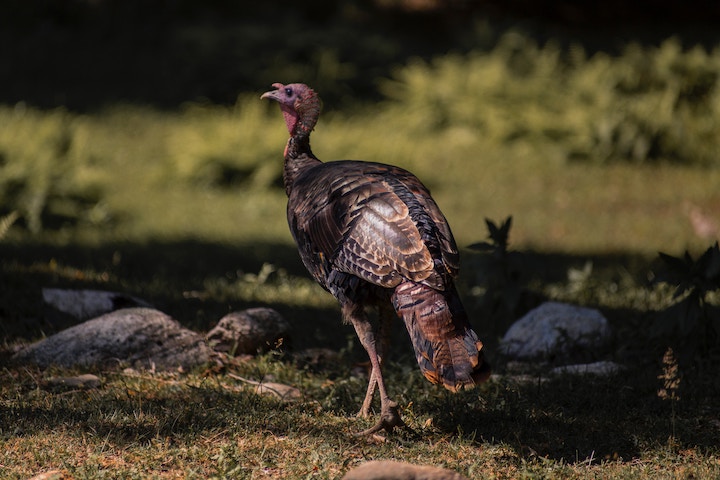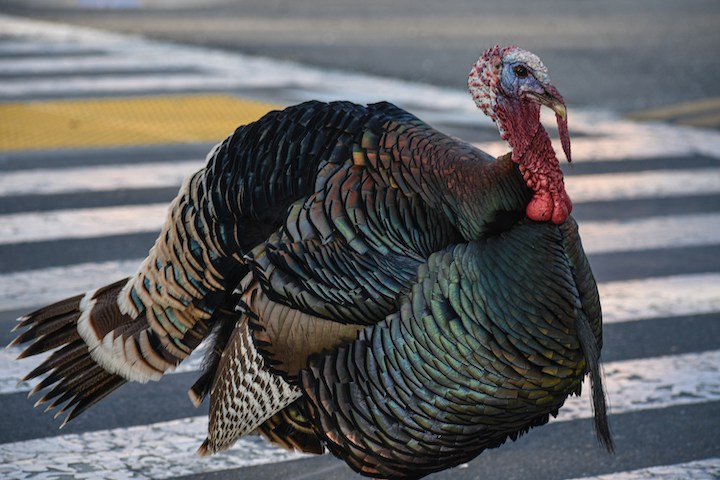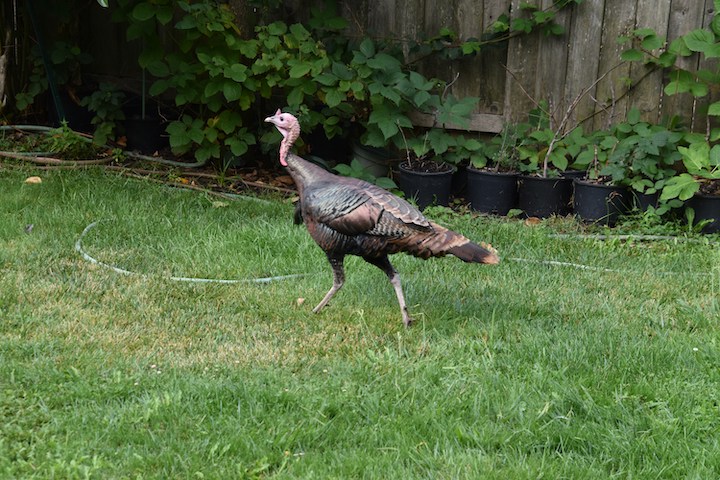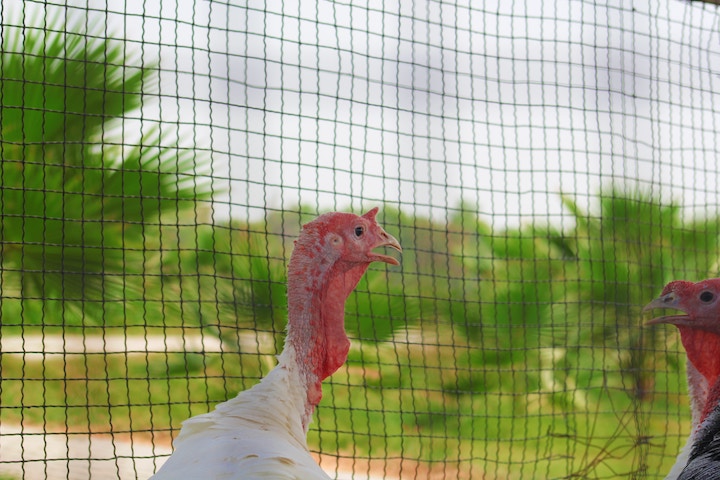Death is a natural and inevitable part of life, yet it can still be a difficult and uncomfortable topic to discuss. However, nature has a way of showing us the beauty and wisdom within the cycles of life and death. Take, for example, the dead turkey. While this may seem like a morbid subject, the symbolism and spiritual meaning behind a dead turkey can provide insight into the natural cycles of death and the importance of reflection and acceptance.
In this blog post, we will delve into the significance of dead turkeys in various cultures and explore how we can apply their wisdom to our own lives.
Key Takeaways
- Death is a natural part of life, and while it may be difficult to discuss, we can find wisdom and beauty in the cycles of life and death.
- Dead turkeys symbolize the transformative power of change and the importance of letting go of what no longer serves us.
- Reflection and self-examination are encouraged by the spiritual meaning of dead turkeys, allowing us to live authentically and with intention.
- Expressing gratitude and appreciation for the abundance in our lives is a significant aspect of the dead turkey’s symbolism.
- The dead turkey can also serve as a vehicle for connecting with the spiritual realm, offering guidance and blessings.
- By embracing the wisdom of dead turkeys, we can navigate the natural cycles of life and death with reflection, acceptance, and gratitude.
Turkeys: A Scientific Overview
Turkeys are fascinating creatures that have captivated human interest for centuries. From their distinctive appearance to their behaviors and biology, turkeys have a unique place in the natural world. Understanding the scientific aspects of turkeys can help us appreciate their significance even more.
Firstly, let’s explore the physical characteristics of turkeys. These birds are large and have a distinctively colorful plumage. Male turkeys, known as toms or gobblers, are known for their impressive tail feathers and striking displays during courtship rituals. Females, or hens, are generally smaller and have more subdued coloring. Turkeys have strong legs and sharp beaks, which they use for foraging and communication.
In terms of behavior, turkeys are social creatures that live in flocks. They are highly vocal and communicate with various calls and sounds, including the well-known gobble of the males. Turkeys are omnivorous and feed on a variety of foods, including insects, berries, seeds, and even small reptiles or amphibians. They roost in trees at night for safety from predators.
From a biological perspective, turkeys belong to the family Phasianidae, which includes pheasants and quails. The wild turkey, scientifically known as Meleagris gallopavo, is native to North America and is the ancestor of the domesticated turkey. Male turkeys are generally larger and more brightly colored than females, which is a common characteristic in bird species where males compete for mates.
Turkeys have also been subject to extensive scientific study due to their economic importance as a food source. Researchers have investigated their genetics, breeding behavior, and physiological adaptations. These studies have contributed to advancements in poultry farming and conservation efforts to protect wild turkey populations.

Dead Turkey Spiritual Meaning
When it comes to dead turkey symbolism, there is a wealth of spiritual meaning that can be derived from this seemingly morbid subject. While interpretations can vary across different cultures and individual beliefs, here are five key spiritual meanings associated with dead turkeys:
1. Transition and Transformation: The dead turkey represents the cycle of life and death, reminding us that endings are a necessary part of new beginnings. Just as the turkey transitions from an egg to a mature bird, death marks the end of one phase and the start of another. This symbolism encourages us to embrace change, let go of what no longer serves us, and trust in the transformative power of life’s natural cycles.
2. Release and Surrender: The death of a turkey symbolizes the act of sacrifice and surrender. It reminds us of the importance of letting go of our ego, desires, and attachments. By releasing our attachments and surrendering to the greater good, we can cultivate selflessness and prioritize acts of generosity and compassion.
3. Reflection and Self-Examination: The dead turkey serves as a powerful symbol of self-reflection and introspection. It urges us to take the time to reflect on our own lives, values, and actions. Through reflection, we can gain insight into our priorities, goals, and the impact we have on others. This spiritual meaning of the dead turkey encourages us to live authentically and with intention.
4. Appreciation and Gratitude: Dead turkeys have long been a source of sustenance and nourishment for many cultures. Therefore, the dead turkey symbolizes gratitude and appreciation for the resources that sustain us. It serves as a reminder to express gratitude for the abundance in our lives and to appreciate the blessings, both big and small.
5. Connection to the Spirit Realm: In certain spiritual practices, the dead turkey is seen as a vehicle for connecting with the spiritual realm. It is believed that offering a dead turkey to the ancestors or higher powers can provide guidance, blessings, and communication. This symbolism invites us to recognize the interconnectedness of all beings and encourages us to seek guidance from beyond.
These spiritual meanings of dead turkeys remind us to navigate the cycles of life and death with reflection, acceptance, and appreciation. By embracing these meanings, we can find deeper meaning and wisdom in our own lives and relationships with the natural world.
Also Read – Turkey Spiritual Meaning, Symbolism and Totem
Dead Turkey Symbolism
1. Rebirth and Renewal: Just as the turkey goes through the cycle of life and death, its symbolism represents the idea of rebirth and renewal. The dead turkey reminds us that even in the face of death, there is always the potential for new beginnings and growth. It encourages us to embrace change and to have faith in the transformative power of the natural cycles of life.
2. Protection and Warding off Evil: In certain cultures, the dead turkey is believed to possess protective qualities. It is thought to ward off evil spirits and protect against negative energies. Placing a dead turkey in a specific area or wearing turkey feathers as talismans can be seen as a way to create a shield of protection and promote spiritual well-being.
3. Divine Guidance and Insight: The dead turkey is often associated with the divine realm and is believed to carry messages from higher powers or ancestors. In certain spiritual practices, offering a dead turkey to the gods or spirits is seen as a way to seek guidance, wisdom, and insight. It symbolizes a connection between the mortal and the divine, offering a bridge for communication and receiving divine blessings.
4. Harmony and Balance: The dead turkey symbolizes the importance of harmony and balance in life. Just as the turkey is a vital part of the ecosystem, its death represents the need for all beings to coexist and maintain balance. It reminds us to seek harmony in our relationships, environment, and within ourselves, recognizing that all aspects of life are interconnected.
5. Endings and Closure: The dead turkey symbolizes the acceptance of endings and closure. It prompts us to let go of what no longer serves us and to find closure in situations or relationships that have reached their natural end. It reminds us that death is an inevitable part of life and encourages us to embrace it with grace and acceptance.
These unique dead turkey symbolism offer a fresh perspective on the cycle of life and death, reminding us of the deeper meanings and lessons we can learn from nature’s natural processes. By exploring these uncommon symbolism, we can broaden our understanding of the human experience and find new ways to navigate the complexities of life and death.
Dead Turkey In Dreams
Dreams have long held a mysterious and symbolic place in human culture. They are often seen as a window into our subconscious mind, revealing hidden desires, fears, and emotions. So, what does it mean if you dream about a dead turkey?
Dreaming of a dead turkey can carry a range of symbolic meanings. One interpretation is that it represents the end of something significant in your life. It may indicate that you are letting go of old habits, beliefs, or relationships that no longer serve you. The dead turkey in your dream can be a powerful symbol of closure and transformation, urging you to embrace change and move forward.
On the other hand, dreaming of a dead turkey could also symbolize a loss or a feeling of emptiness. It may be a reflection of unresolved grief or sadness that you are experiencing in your waking life. This dream can be a sign for you to take the time to process and heal from past losses, allowing yourself to fully grieve and release the pain.
In some cases, dreaming of a dead turkey can represent a warning or a message from your subconscious. It may be a signal for you to pay attention to your health and well-being. Consider if there are any areas of your life where you are neglecting self-care or feeling overwhelmed. The dream could be encouraging you to take better care of yourself and prioritize your physical and mental well-being.
Another possible interpretation of dreaming about a dead turkey is the need for gratitude and appreciation. Just as a dead turkey is a reminder to express gratitude for the sustenance it provides, your dream may be prompting you to focus on the blessings and abundance in your life. Take a moment to reflect on the things you are grateful for and practice gratitude in your daily life.
Ultimately, the meaning of a dream about a dead turkey will depend on your personal experiences, emotions, and circumstances. It is essential to listen to your intuition and consider the context of the dream to gain a deeper understanding of its message. If you find that the dream continues to resonate with you, journaling or speaking with a therapist or dream interpreter may offer further insight and clarity.
Remember, dreams are a personal and subjective experience. They can provide valuable insights into your inner world, but the interpretation is ultimately up to you. Pay attention to the emotions and themes that arise in your dreams and use them as a guide for self-reflection and personal growth. The dead turkey in your dream may hold wisdom and messages that can help you navigate your waking life with a deeper understanding and awareness.

Turkey As A Spirit Animal
Turkeys have long held a significant place in various cultures as spirit animals, representing unique qualities and offering guidance and insight. As a spirit animal, the turkey embodies several powerful characteristics that can resonate with individuals on a spiritual level.
One of the primary qualities associated with the turkey as a spirit animal is abundance. Just as turkeys are known for their plump bodies and rich meat, they symbolize abundance in all aspects of life. This includes abundance of love, prosperity, and opportunities. The turkey encourages individuals to embrace abundance and to believe in their own ability to attract and receive abundance in their lives.
The turkey also represents the importance of community and connection. Turkeys are highly social creatures that live in flocks, relying on one another for safety, support, and companionship. As a spirit animal, the turkey reminds us of the power of unity and encourages us to foster strong connections with others. It emphasizes the value of collaboration, cooperation, and building harmonious relationships.
Additionally, the turkey as a spirit animal symbolizes gratitude and appreciation. Just as the dead turkey represents gratitude for the resources it provides, the spirit turkey encourages individuals to express gratitude for the blessings in their lives. It reminds us to appreciate the abundance that surrounds us and to cultivate an attitude of gratitude.
Lastly, the turkey as a spirit animal represents wisdom and spiritual connection. Turkeys are believed to be carriers of ancient knowledge and sacred messages from the spirit realm. They are seen as intermediaries between the physical and spiritual worlds, offering guidance, protection, and insight. By connecting with the spirit turkey, individuals can tap into their own inner wisdom and gain access to divine guidance.
Embracing the turkey as a spirit animal invites individuals to cultivate abundance, community, gratitude, and wisdom in their lives. It serves as a reminder of the profound interconnectedness between all beings and the spiritual wisdom that can be accessed within ourselves. By honoring the spirit of the turkey, individuals can deepen their spiritual journey and find greater alignment with their true selves.
Global Perspectives: Understanding Dead Turkey Symbolism in Various Cultures
Throughout history, the symbolism and spiritual meaning of the dead turkey have varied across different cultures. Let’s take a journey around the world to explore the unique perspectives and interpretations of dead turkey symbolism.
In Native American cultures, the turkey holds great importance and is seen as a sacred animal. Among the Navajo people, for example, the turkey is associated with abundance, protection, and fertility. It is believed that the feathers of a dead turkey can be used in healing ceremonies to bring balance and harmony to the individual. In the Pueblo culture, the turkey is associated with gratitude and is often used as an offering in rituals and ceremonies to express thanks for the bountiful harvest and the gifts of nature.
In ancient Greek mythology, the turkey was connected to the goddess Artemis, who was the protector of the wilderness and the hunt. The turkey was seen as a symbol of fertility and sacrifice, as it was believed that Artemis could transform people into turkeys as punishment. In this context, the dead turkey represented the consequences of one’s actions and the need for self-reflection and growth.
In Chinese culture, the dead turkey symbolizes luck and abundance. The turkey’s rich, flavorful meat is often associated with celebrations and feasts, particularly during the Chinese New Year. In this context, the dead turkey represents good fortune and the fulfillment of desires.
In Celtic mythology, the dead turkey is linked to the cycle of life and death. The turkey’s presence in Celtic rituals and folklore represents the transition from one phase of existence to another. It is believed that the turkey’s sacrifice and subsequent consumption provided a connection between the living and the spirit world, allowing for communication with ancestors.
In the context of African spirituality, the dead turkey is associated with ancestral worship and spiritual protection. It is believed that offering a dead turkey to the ancestors can provide guidance and blessings. The dead turkey is seen as a vehicle for connecting with the spirit realm and receiving messages from beyond.
These are just a few examples of how dead turkey symbolism varies across different cultures. Each interpretation adds depth and richness to our understanding of the natural cycles of life and death. By exploring these global perspectives, we can gain a broader appreciation for the profound wisdom and meaning that can be found in the deceased turkey.
Whether it is seen as a symbol of sacrifice, rebirth, gratitude, or communication with the spiritual realm, the dead turkey serves as a powerful reminder of the interconnectedness of all beings and the universal experience of death. By embracing the diverse cultural interpretations of dead turkey symbolism, we can find common threads of wisdom that transcend boundaries and offer insights into our own lives and relationships with the natural world.
Check Out – Turkey Vulture Spiritual Meaning, Symbolism and Totem
Ritualistic practices involving the hunting and preparation of turkeys
Ritualistic practices involving the hunting and preparation of turkeys have been an integral part of many cultures throughout history. These practices often hold deep spiritual significance and are carried out with great reverence and respect for the turkey as a sacred creature. Let’s explore some of these rituals and traditions from different cultures:
In Native American cultures, the hunting and preparation of turkeys were accompanied by elaborate ceremonies and rituals. Before the hunt, tribes would perform rituals to seek the guidance and blessings of the spirits. The hunters would express their gratitude and ask for a successful and respectful hunt. After the hunt, the turkey would be prepared and cooked in a ceremonial manner, with each part of the bird used and honored.
In some African cultures, the hunting and preparation of turkeys were seen as acts of spiritual connection and communication. Hunters would perform rituals to ask for the blessing and guidance of their ancestors before setting out on the hunt. Once the turkey was captured, it would be prepared and cooked in a specific manner, with each step of the process symbolizing the connection between the physical and spiritual realms.
In ancient Greek and Roman cultures, the hunting and preparation of turkeys were often associated with feasts and celebrations. These rituals were seen as a way to honor the gods and express gratitude for the abundance provided by nature. The turkeys would be prepared and cooked in a festive manner, with the meat shared among the community as a symbol of unity and prosperity.
In modern times, the hunting and preparation of turkeys have evolved into Thanksgiving traditions in many Western cultures. While the spiritual significance may not be as pronounced, these rituals still hold a sense of reverence and gratitude for the bounty of the harvest season. Families gather together to prepare and cook the turkey, sharing in the joy of abundance and giving thanks for the blessings in their lives.
These ritualistic practices involving the hunting and preparation of turkeys demonstrate the deep respect and connection that cultures have with these creatures. They serve as reminders of the importance of gratitude, reverence, and unity in our relationship with nature. Whether performed as a sacred ceremony or a festive tradition, these rituals honor the cycle of life and death and the sustenance provided by the turkey.

Conclusion
Death is a universal experience that we all must face, but it can still be a challenging topic to discuss. However, by looking to nature, we can find wisdom and beauty in the cycles of life and death. One creature that offers valuable insights into these cycles is the dead turkey.
The symbolism and spiritual meaning behind a dead turkey remind us of the importance of reflection and acceptance. Just as the turkey goes through a transformation from an egg to a mature bird, death marks the end of one phase and the beginning of another. Embracing this symbolism encourages us to accept change, let go of what no longer serves us, and trust in the transformative power of life’s natural cycles.
The death of a turkey also symbolizes the act of sacrifice and surrender. It reminds us to release our ego, desires, and attachments, and to cultivate selflessness and acts of generosity. By surrendering to the greater good, we can find inner peace and prioritize compassion in our lives.
Reflection and self-examination are also significant spiritual meanings associated with the dead turkey. This symbolism urges us to take the time to reflect on our values, actions, and the impact we have on others. Through self-reflection, we can gain insight into our priorities and live with authenticity and intention.
The dead turkey symbolizes gratitude and appreciation for the resources that sustain us. It serves as a reminder to express gratitude for the abundance in our lives, both big and small. By appreciating our blessings, we can cultivate a mindset of gratitude and find greater fulfillment in our daily lives.
In certain spiritual practices, the dead turkey is seen as a vehicle for connecting with the spirit realm. Offering a dead turkey to ancestors or higher powers is believed to provide guidance, blessings, and communication. This symbolism encourages us to recognize the interconnectedness of all beings and seek guidance from beyond.
By embracing the wisdom of dead turkeys, we can navigate the cycles of life and death with reflection, acceptance, and gratitude. These meanings invite us to find deeper meaning and wisdom in our own lives and relationships with the natural world. The dead turkey serves as a powerful reminder of the interconnectedness of all beings and the transformative power of embracing life’s natural cycles.
Frequently Asked Questions
- What does a dead turkey symbolize?
The dead turkey represents the cycle of life and death, reminding us that endings are a necessary part of new beginnings. It symbolizes transition, transformation, release, surrender, reflection, self-examination, appreciation, and connection to the spirit realm.
- How can we apply the wisdom of dead turkeys to our own lives?
By embracing the meanings associated with dead turkeys, we can navigate the cycles of life and death with reflection, acceptance, and gratitude. We can let go of what no longer serves us, live authentically and with intention, express gratitude for the abundance in our lives, and seek guidance from the spiritual realm.
- What does it mean if you dream about a dead turkey?
Dreaming of a dead turkey can symbolize the end of something significant, the need for closure or healing, a warning or message from your subconscious, or the importance of gratitude and appreciation.
- What qualities does the turkey possess as a spirit animal?
As a spirit animal, the turkey represents abundance, community, gratitude, and wisdom. It teaches us to embrace abundance, foster strong connections with others, express gratitude, and tap into our inner wisdom.
- How does dead turkey symbolism vary across different cultures?
The symbolism of dead turkeys varies across different cultures, but common themes include abundance, protection, fertility, luck, connection to ancestors or spirits, and the cycle of life and death.

